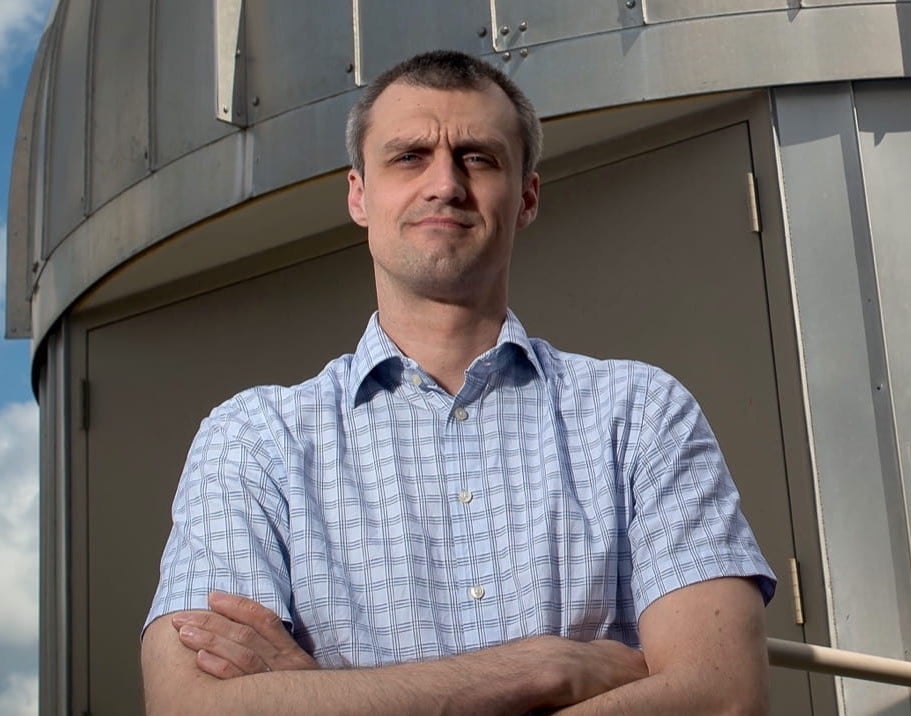The Ken Kennedy Institute's June Member of the Month: Stephen Bradshaw, Professor and Associate Department Chair of Physics & Astronomy.
Dr. Stephen J. Bradshaw received his M.S. in Physics (Planetary & Space Physics) from Aberystwyth University, and his Ph.D. in Solar Astrophysics from Cambridge University. His research interests include the astrophysics of the sun and plasma physics, specifically studying the following: heating in the solar atmosphere; solar flares; heating and acceleration of the slow solar wind; energy transport processes; time-dependent ionization states; emission line spectroscopy, electron and ion kinetics; non-equilibrium processes; non-local phenomena; and hybrid fluid-kinetic approaches.
How do you explain your research in one sentence?
I pursue theoretical investigations and numerical experiments concerning the physics of plasmas.
How does your work impact the community at large?
I focus on astrophysical plasmas, primarily the upper atmosphere of the Sun. This region is the major progenitor of solar storms and what we ultimately experience as space weather here at the Earth. Our space-based technology, on which our society is utterly reliant, can be vulnerable to what the Sun has to throw at us. Building a greater understanding of the physical processes that occur in the Sun’s atmosphere will allow us to better understand the Sun-Earth interaction, forecast space weather events and develop effective strategies for mitigating their consequences.
What kind of collaborations are you looking for at Rice and within the community?
I am always looking to employ state-of-the-art methods to tackle my research problems, particularly with respect to numerical modeling, and so I like to work with the applied mathematicians of (what used to be) the CAAM department, now CMOR. I think we cross-pollinate well because they like to apply their tools and solvers to the frontier problems that scientists are grappling with.
How do you see computation and data advancing in the future?
I don’t subscribe to the “quantum revolution” in computing and all the noise around it at present. I heard it described as “big quantum”, which amused me. There are research groups (including at Rice) that have some very impressive achievements, but quantum computing is obviously a long way from being useful for anything other than very specifically tailored problems. I expect to be using silicon for the rest of my career, though with ever-increasing cores/threads and memory. I am sure that bespoke processors, dedicated to particular kinds of workload (especially ML/AI tasks), will be adapted to scientific computing applications, much as GPUs have already been so impactful.
How do you see the Ken Kennedy Institute supporting you and/or your research?
I was a member of the original proposal team for the NOTS cluster and my research group makes significant use of the computational resources provided and managed by the K2I.
What is your favorite book or movie?
I don’t maintain lists of favorites, as such. I have fairly broad tastes and it is difficult to compare across genres. I tend to say whatever I happen to be interested in at the time of asking. Some constants are the work of PG Wodehouse and Tom Sharpe. I am currently enjoying a biography of Peter Higgs (of boson fame).
_
See Stephen's Rice Profile here.

